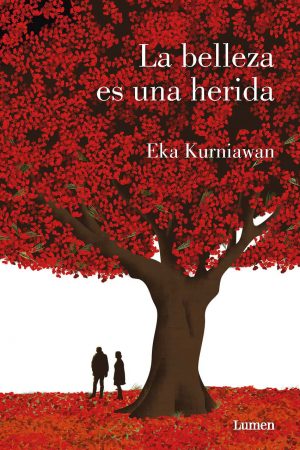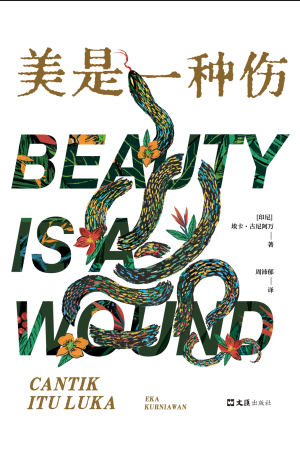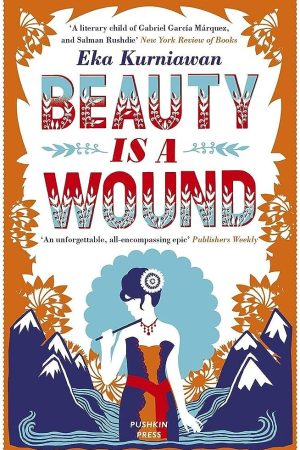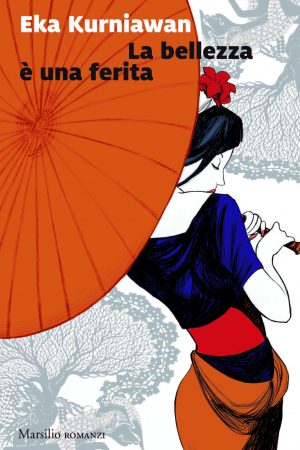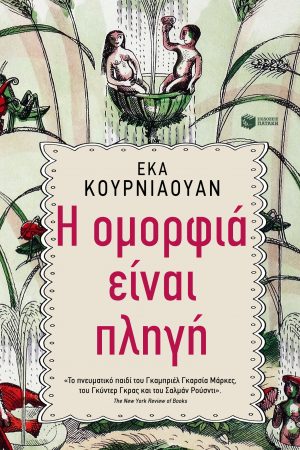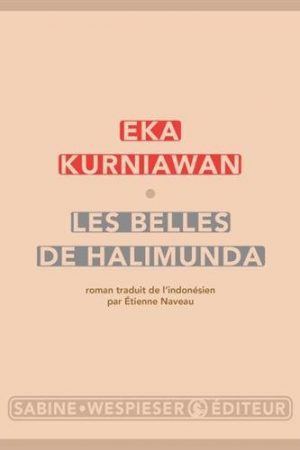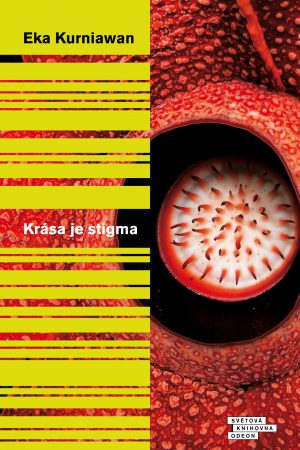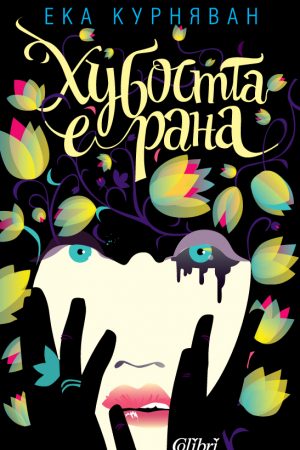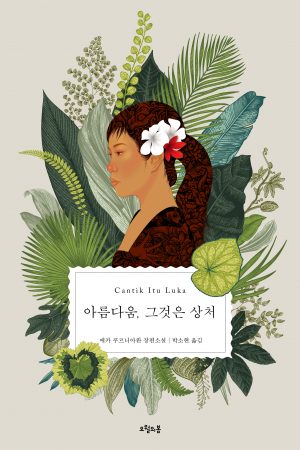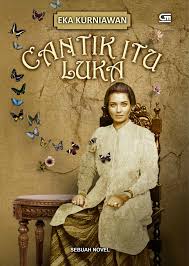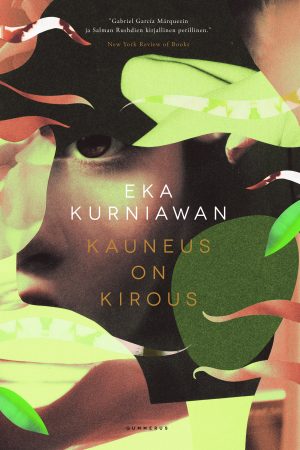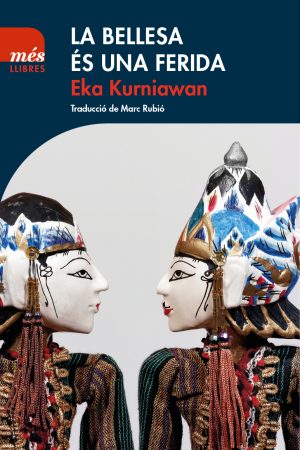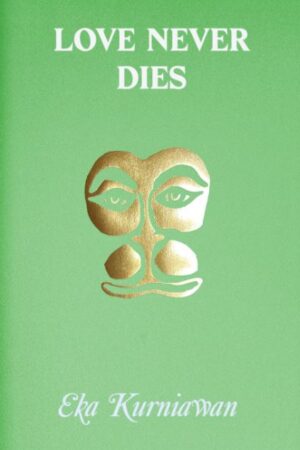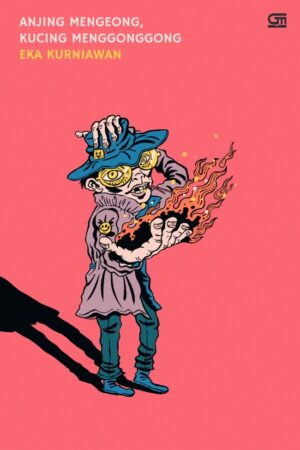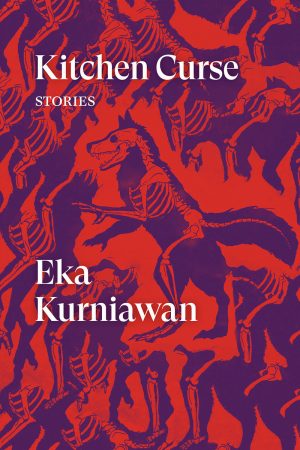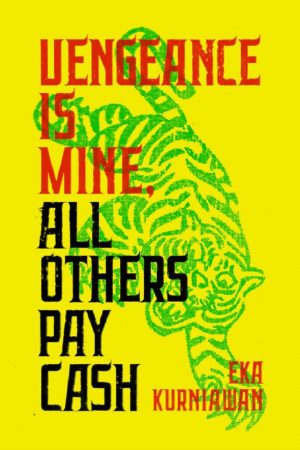Beauty is a Wound
The epic novel Beauty Is a Wound combines history, satire, family tragedy, legend, humor, and romance in a sweeping polyphony. The beautiful Indo prostitute Dewi Ayu and her four daughters are beset by incest, murder, bestiality, rape, insanity, monstrosity, and the often vengeful undead. Kurniawan's gleefully grotesque hyperbole functions as a scathing critique of his young nation's troubled past: the rapacious offhand greed of colonialism; the chaotic struggle for independence; the 1965 mass murders of perhaps a million "Communists," followed by three decades of Suharto's despotic rule.
Beauty Is a Wound astonishes from its opening line: "One afternoon on a weekend in May, Dewi Ayu rose from her grave after being dead for twenty-one years…" Drawing on local sources—folk tales and the all-night shadow puppet plays, with their bawdy wit and epic scope—and inspired by Melville and Gogol, Kurniawan's distinctive voice brings something luscious yet astringent to contemporary literature.
Request more informationCovers
Original Language
BAHASA INDONESIA | Gramedia
Translation Rights
ARABIC | Kotobkhan
BULGARIAN | Colibri
CATALAN | Bromera
CHINESE (Complex) | Ecus
CHINESE (Simplified) | ThinKingDom
CROATIAN | Znanje
CZECH | Odeon
DANISH | Batzer & Co
DUTCH | Lebowski
ENGLISH (US excl ANZ) | New Directions
ENGLISH (ANZ) | Text Pub.
ENGLISH (UK & Comm. excl. Canada & ANZ) | Pushkin Press
ENGLISH (Indian subcontinent) | SpeakingTiger
FINNISH | Gummerus
FRENCH | Sabine Wespieser
GERMAN | Unionsverlag
GREEK | Patakis
HEBREW | Shocken
ICELANDIC | Forlagid
ITALIAN | Marsilio
JAPANESE | Shunjusha
KOREAN | Maybooks
LITHUANIAN | Kitos Knygos
MALAY | Marshal Cavendish
MALAYALAM | Poorna Publications
NORWEGIAN | Pax Forlag
POLISH | Literackie
ROMANIAN | Alice Books
RUSSIAN | Phantom Press
SERBIAN | Dereta
SLOVENIAN | Mladinska
SLOVAK | Ikar/Odeon
SPANISH (World) | Lumen
SWEDISH | Nilsson Forlag
PORTUGUESE (Brazil) | Jose Olympio/Record
TURKISH | Domingo
VIETNAMESE | Nha Nam
Prizes
FT Oppenheimer Emerging Voices Prize Winner 2016
Man Booker International Finalist 2016
Winner of the World Readers Awards
Longlisted for the Best Translated Book Awards (BTBA) 2016
Reviews
«An arresting portrait of Indonesia’s struggle for nationhood’ and a ‘satire’ with ‘a sense of humor that emerges even when he writes about the hundreds of thousands of people killed in the anti-Communist purge, of 1965…Despite its darkness, the book is playful and spirited, paying homage to the Indonesian form of wayang, or shadow puppetry, which is often used in the retelling of Hindu epics, such as the Ramayana and Mahabharata.» The New Yorker
«Kurniawan does not merely traffic skillfully in magic realism; his Halimunda—like García Márquez’s Macondo and Faulkner’s Yoknapatawpha County—lets him show how the currents of history catch, whirl, carry away and sometimes drown people…García Márquez could fall into sententiousness and grandiosity; Kurniawan, by contrast has a wry, Javanese sense of humor…Whatever he chooses to write will be well worth reading.» New York Times Book Review
«Set during the singularly tumultuous period from just before World War II through most of the rest of the 20th century, the book pulls off the bold feat of telling Dewi Ayu’s family history while also telling Indonesia’s in a way that doesn’t seem heavy-handed or forced…[T]his is an impressive, accomplished book. Gracefully translated by Annie Tucker, the writing is evocative and muscular, with particularly spicy descriptions and some good wry humor.» The New York Times
«Brash, worldly and wickedly funny, Eka Kurniawan may be South-East Asia’s most ambitious writer in a generation.» The Economist
«An unforgettable, all-encompassing epic of Indonesian history, magic, and murder. (…) The combination of magic, lore, and pivotal events reverberating through generations will prompt readers to draw parallels between Kurniawan's Halimunda and García Márquez's Macondo. (…) Upon finishing the book, the reader will have the sense of encountering not just the history of Indonesia but its soul and spirit. This is an astounding, momentous book.» Publishers Weekly, starred review
«A fairy tale can lose its charm, curdling for lack of much to care about, but in Beauty, the strangeness comes alive with need.» John Domini, The Chicago Tribune
«A lush, raucous, and fabulous saga.» Library Journal
«A vivid, bawdy, and arresting epic painted with bold strokes on a vast canvas. Highly recommended.» Booklist
«Kurniawan sets the stage for an epic picaresque that’s equal parts Canterbury Tales and Mahabharata. Weaving back in forth in time, moving from character to character, the author tells the story of Indonesia from its Dutch colonial days, through the Japanese occupation during World War II, and into independence as a modern state. Huge ambition, abundantly realized.» Kirkus Reviews, starred review
“If [Pramoedya] was [Indonesia]’s Zola, Mr. Kurniawan is shaping up to be its Murakami: approaching social concerns at an angle rather than head-on, with hefty doses of surrealism and wry humour.” The Economist
“Exuberant, funny, crackling with energy and invention.” The Times
“It’s easy to see why he is being compared to Gabriel García Márquez and hailed as one of the leading lights of contemporary Indonesian fiction.” The Financial Times
“Magical realism to rival that of Gabriel García Márquez or Salman Rushdie.” The Independent
“A touching combination of romance, tragedy, and satire, the novel follows the women of one family over many generations as their struggles reflect the Indonesia's turbulent past and its battle for independence.” Harper’s Bazaar
“Spanning the Indonesian 20th century—from the Dutch colonial period and the Japanese occupation to the brutal mass murder of Communists in the 1960s and the tyrannical decades that followed—Kurniawan’s epic is filled with magic and murder, by turns political and fabulist, and has drawn comparisons to Marquez, Gogol, and Melville. But Kurniawan’s vision is wholly unique, exploding the absurdity and grotesque of recent Indonesian history into a fever-pitched narrative about family, love, and adventure in a time of unbelievable tragedy. For readers who thought One Hundred Years of Solitude too precious, too pat, and left wanting more.” Literary Hub
“One of the most exciting fiction writers in the Indonesia.” The Sun Daily
“American literature has been missing Kurniawan, without even being aware, until now, of our loss—a situation that Annie Tucker’s dauntless translation, in particular, has helped to remedy… Kurniawan’s nimble style, his improvisatory glee, allows him this scope: the satirical tumbling into the absurd, suddenly yielding to sentiment, to sly commentary, to pathos, to magic, to brief lush imagery, and ever onward… With his keen sense of voice and perspective, combined with a freedom from realism and bold use of exaggeration, he is able to portray collective as well as individual experience, to make both at once the subject of his fiction.” Bookforum

